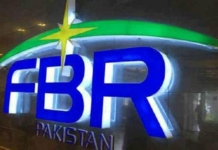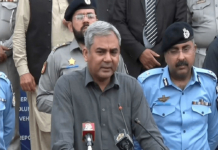Sindh Information Minister Sharjeel Inam Memon Tuesday said that the April 26 Karachi University suicide bombing was a joint plan by the banned Balochistan Liberation Army (BLA) and the Balochistan Liberation Front (BLF), in which a “neighbouring country” had played a role.
In April, a female suicide bomber, Shari Baloch, detonated herself outside KU’s Confucius Institute, killing three Chinese and their local driver. At the time, the BLA had claimed responsibility for the attack. In a meeting with a Chinese delegation at the CM’s House, the Sindh IG had disclosed that an “important suspect” had been taken into custody.
In a presser on Monday, Memon said that the suspect had revealed that the KU attack was the joint work of the BLF and the BLA. The Counter-Terrorism Department collected CCTV footage, and conducted geo-fencing and DNA sampling, which led to the arrest of the BLF commander in Karachi, he said, identifying the suspect as Daad Baksh.
He went on to say that the suspect met with the husband of the female suicide bomber, Dr. Haibastan Bashir, and another ” terrorist” named “Zeb” in Karachi. Memon said that the suspect had revealed that Zeb was the KU attack mastermind, who entered Pakistan from a “neighbouring country” and had been staying in Karachi with Baloch and her husband.
He said the suspect had confessed that he joined the BLF in 2013 and carried out multiple attacks on security forces in Balochistan, Memon said. “In 2017, he fled to a neighbouring country at the directives of the BLF commander. He later returned and stayed in Karachi.”
“In 2022, the terrorist went to a neighbouring country and was trained by Zeb on making IEDs at the BLF and BLA camp at the Majeed Brigade’s headquarters in Captain Rehman Gul’s basement,” he added.
“Zeb is an extremely dangerous terrorist and an expert at making IEDs,” Memon said, adding that he had entered the KU before Baloch and had left immediately after the attack was carried out. He said that the country in question would be conveyed a message in line with diplomatic norms. “I don’t think it is appropriate to name any country,” he added.







